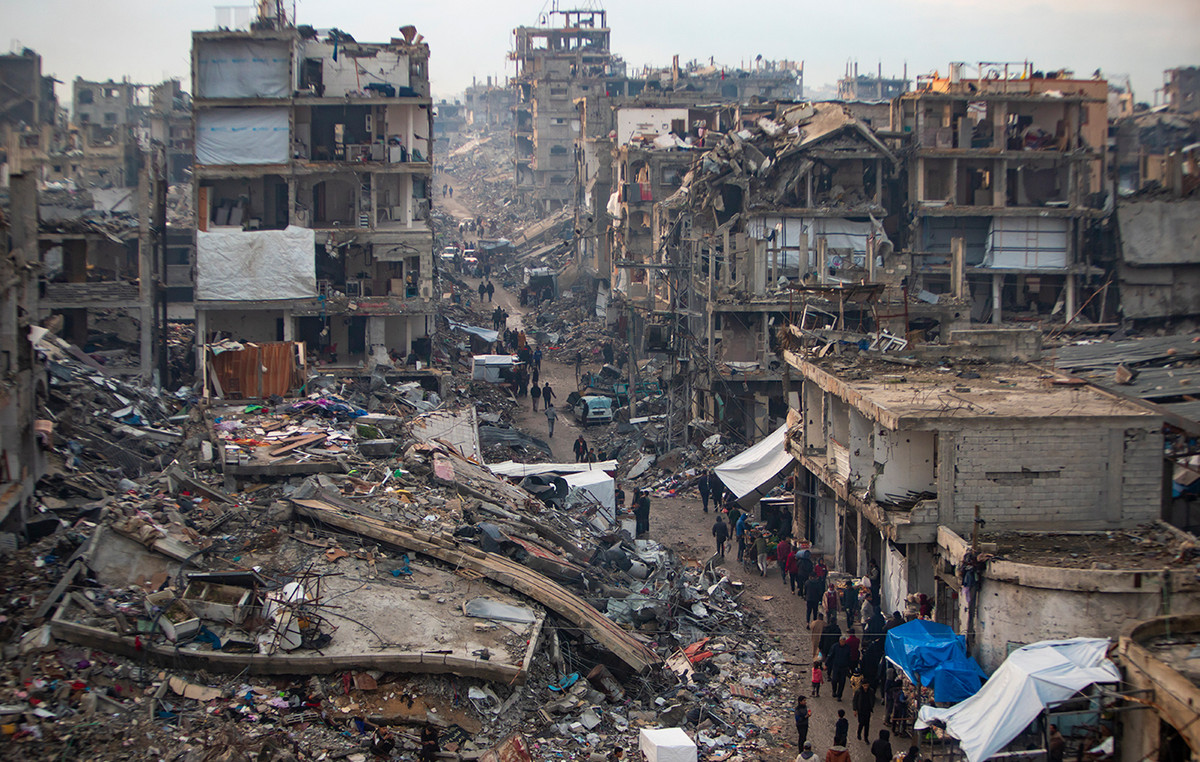What happened like today in Greece and the world.
1014: Henry of Bavaria, King of Germany and Italy, is crowned Holy Roman Emperor by Pope Benedict VIII.
1076: Pope Gregory VII excommunicates Henry IV of the Holy Roman Empire.
1349: In Strasbourg, 2,000 Jews are burned alive by an enraged crowd of Christians, who hold them responsible for an epidemic of bubonic plague that has struck their city.
1477: Margery Bruce sends John Paston her first love letter on Valentine’s Day. Addressed “To My Beloved Valentine”.
1502: The Catholic Monarchs issue a decree forcing the Muslims in Granada to convert to Catholicism or leave Spain.
1778: For the first time, the US flag, the starfish, flies on an American ship traveling abroad.
1779: James Cook is killed by natives at Kilakekua Bay on the island of Hawaii.
1797: John Jervis and Horace Nelson lead the British Royal Navy to victory against the Spanish Fleet at the Battle of St. Vincent near Gibraltar.
1804: Karagiorgis Petrovic leads the First Serbian Uprising against the Ottoman Empire.
1859: Oregon becomes the 33rd US state.
1876: Alexander Graham Bell applies for a patent for the telephone.
1896: Zionism’s founder Theodor Herzl publishes the manifesto “Der Judenstaat” (The State of the Jews), marking the emergence of Zionism.
1898: The assassination attempt against King George I, which was made on the occasion of the defeat of the Greek army last year by the Turks and with the aim of ascending the throne to the successor Constantine, fails.
1902: Martial law is imposed in Trieste, Italy, as strikes to reduce working hours turn into a bloody uprising.
1912: Arizona becomes the 48th US state.
1918: The Soviet Union adopts the Gregorian calendar.
1924: The Computing-Tabulating-Recording Company changes its name to International Business Machines Corporation (IBM).
1929: In the USA, on Valentine’s Day, seven Al Capone gangsters kill seven members of Bugs Morgan’s gang in the “Valentine Massacre”, in a Chicago garage.
1943: Rostov-on-Don in Russia is liberated.
1943: Battle of Sidi Bouzid: The German Army launches a concerted attack against Allied positions in Tunisia.
1944: British submarine sinks a German-controlled Italian submarine in the Strait of Malacca.
[1945: Navigational error leads to accidental bombing of Prague by US B-17 squadron.
1950: Joseph Stalin and Mao Zedong sign a 30-year friendship and mutual aid agreement between the USSR and China.
1946: The first electronic computer, called ENIAC and manufactured by IBM, goes into operation in the US Pentagon.
1956: The 20th Congress of the Soviet Communist Party begins. During his tenure, Nikita Khrushchev renounces the cult of Joseph Stalin and preaches “de-Stalinization”.
1961: Great indignation in Epirus, as a float of the paternal carnival satirizes the conflict between Patras and Igoumenitsa over the end of the ferry line between Greece and Italy. The Municipal Councils of Ioannina, Arta and Preveza demand the immediate withdrawal of the tank in question.
1962: For the first time, a television camera enters the White House and presents its interior. The host is the first lady of the USA, Jackie Kennedy.
1962: The Metropolitan of Kavala, Chrysostomos, is elected Archbishop of Athens and all Greece, defeating his main rival, archimandrite and university scholar Ieronymos Kotsonis.
1979: In Kabul, Afghanistan, Muslim extremists kidnap the US ambassador, Adolph Dabbs, who is later killed during a shootout between the kidnappers and police.
1981: In Italy, a deadly earthquake hits the Naples area, killing 2,916 people.
1983: In Cyprus, Spyros Kyprianou is declared president for a new five-year term.
1987: The founding declaration of the Special Olympics is signed, which has developed a rich sporting and educational project for people with intellectual disabilities.
1987: The leading Greek theater director Karolos Koun has passed away. He was a theater director, known for his performances of ancient plays. He became famous throughout Europe with the political comedies of Aristophanes. In 1942 he founded the experimental Art Theater and the drama school that bears his name.
1991: In Brazil, 157 people lose their lives during the carnival in Rio de Janeiro, 74 of whom were murdered under unknown circumstances.
1991: “Desert Storm” is underway. An armor-piercing bomb dropped by an American plane penetrates a civilian shelter in Baghdad, killing 300 women and children.
1992: In Thessaloniki, hundreds of thousands of people participate in the Pan-Macedonian Rally for Skopiano.
1993: The convention for the abolition of chemical weapons is signed in Paris by 120 countries, including Greece.
1993: Glaukos Cleridis wins the presidential elections in Cyprus, garnering 50.3% of the votes, overturning all predictions and defeating his opponent Giorgos Vassiliou.
1995: A wooden tablet with an unknown inscription, found in Kastoria, is considered the oldest organized text found in Europe and dates back to 7,254 years ago.
1995: In the US, the film “Forrest Gump” collects 13 Oscar nominations, followed by “Bullets over Broadway” and “Pulp Fiction” with seven.
1999: Haile Gebreselassie breaks his own 15th 5,000m world record with 12:50.38 at the BUPA Indoor Grand Prix.
2004: In Moscow, a roof collapses in an amusement park and kills 25 people.
2005: Youtube is founded.
2008: At the University of Illinois, a gunman kills five people and then kills himself.
2020: Egypt reports first case of Wuhan coronavirus infection in Africa.
Births
1483 – Babur, Mongol emperor
1602 – William V, Landgrave of Hesse-Kassel
1614 – John Wilkins, English scholar and clergyman
1722 – Georg Christian Ficksel, German geologist
1763 – Jean Victor Moreau, French general
1794 – Frank Hastings, English sea captain
1824 – Winfield Scott Hancock, American general
1828 – Edmond Abou, French writer
1869 – Charles Thomson Rees Wilson, Scottish physicist
1895 – Max Horkheimer, German philosopher and sociologist
1912 – Timbor Szekely, Yugoslav explorer and writer
1929 – Vic Morrow, American actor
1933 – Madhubala, Indian actress
1934 – Nikolaos Economidis, Greek Byzantine scholar
1941 – Paul Tsongas, American politician
1943 – Iniaki Ascuña, Spanish politician
1944 – Ronnie Peterson, Swedish racing driver
[1945–HansAdamIIPrinceofLiechtenstein
[1945–LadislaoMazurkiewiczUruguayansoccerplayer
1946 – Bernard Douyogo, President of Nauru
1947 – Heide Rosenthal, German athlete
1951 – Kevin Keegan, English footballer
1952 – Hans Backe, Swedish football player and coach
1953 – Sergei Mironov, Russian politician
1967 – Mark Rutte, Dutch politician
1967 – Stelios Chatziioannou, Greek businessman
1970 – Simon Pegg, English actor
1975 – Nika Gilauri, Georgian politician
1986 – Jamel Abdoun, Algerian football player
1987 – Edinson Cavani, Uruguayan soccer player
1988 – Angel di Maria, Argentine soccer player
1996 – Lucas Hernandez, French soccer player
Deaths
869 – Saint Cyril, Greek monk, scholar and theologian
1009 – Bruno, German missionary
1318 – Margaret of France, Queen of England
1400 – Richard II, King of England
1744 – John Hadley, English mathematician
1779 – James Cook, English sailor and explorer
1887 – Pericles Kalamogdartis, Greek politician
1887 – Vasilios Nikolopoulos, Greek judge
1929 – Thomas Burke, American athlete
1935 – Spyros Simos, Greek politician
1936 – Alexander Gutskov, Russian politician
1943 – David Hilbert, German mathematician
1956 – Antonios Papademos, Greek politician
1964 – Periandros Xenodochiaris, Greek politician
1970 – Arthur Edison, American filmmaker
1987 – Dmitry Kabalevsky, Russian composer
1987 – Karolos Koun, Greek theater director
1991 – Pausanias Katsotas, Greek politician
1994 – Andrei Chikatilo, Soviet assassin
1998 – Michael Vardakas, Greek politician
2005 – Rafik Hariri, Lebanese businessman and politician
2009 – Nikos Kasdaglis, Greek writer
2013 – Nikos Argyropoulos, Greek politician
2015 – Philippe Massoni, French official.
Source: News Beast
With 6 years of experience, I bring to the table captivating and informative writing in the world news category. My expertise covers a range of industries, including tourism, technology, forex and stocks. From brief social media posts to in-depth articles, I am dedicated to creating compelling content for various platforms.







